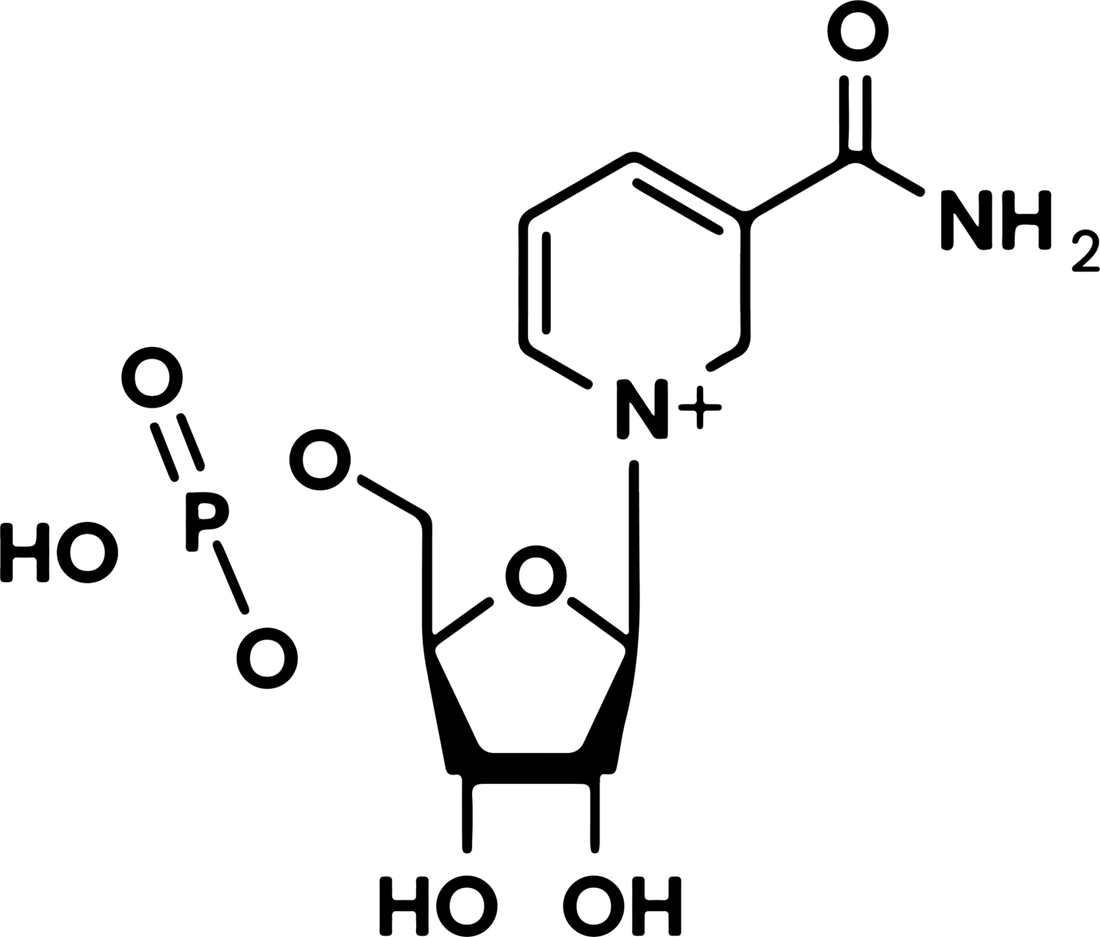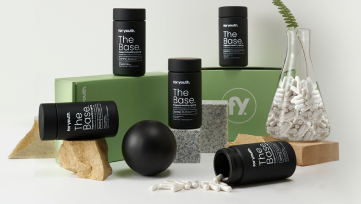So, what is NMN & what does it do?


 Shop our NMN
Shop our NMN 
NMN Raises NAD+ Levels
NMN or Nicotinamide Mononucleotide is a nucleotide that is derived from nicotinamide and ribose. NMN is made from B vitamins and is a molecule that naturally occurs in all life forms. NMN is a direct precursor to Nicotinamide Adenine Dinucleotide (NAD), and helps to increase NAD+ levels and therefore rejuvenates cells and repairs damage.
NAD+ is a crucial coenzyme required for all of our cellular functions. It plays an especially active role in many of our metabolic processes, such as glycolysis (glycolysis is the first step in the breakdown of glucose to extract energy for cellular metabolism), the Krebs Cycle, and the electron transport chain amongst other processes, which occur in our mitochondria and allow us to obtain cellular energy. In essence it is how our body turns food into an energy currency that our body can exploit.

Get The Latest On Longevity Delivered To Your Inbox.
By signing up, you consent to receive For Youth emails
NAD+ Controls DNA Damage and Repair
As we get older, we gradually amass DNA damage from exposure to environmental factors such as pollution and radiation, as well as self-inflicted damage from consuming processed foods, smoking tobacco and excessive alcohol consumption. It has been proven by science that DNA damage is the main cause of ageing. That said, all our cells contain the potential to repair this inevitable damage, and in our younger years do so very effectively, but this requires a big amount of effort on the part of our NAD+.
One important repair protein, PARP (Poly (ADP-ribose) polymerase), relies heavily on NAD+ as a fuel source to repair our damaged DNA. As we age our natural levels of NAD decrease. The accumulation of natural DNA damage as a result of the normal ageing process leads to an ever-increasing need for PARP, which in turn calls for even more NAD from our ever-dwindling supply.
It is a fact that our NAD+ levels drop as we age. Professor David Sinclair has stated that he and many others now believe that returning our NAD+ level back to that of our younger years, may slow or even reverse the ageing process, or at least prevent us from developing ‘gateway diseases’ such as diabetes that lower our defences and allow other, more serious, age-related diseases such as Alzheimer’s and Parkinson’s to take hold.
NAD+ Controls DNA Damage and Repair
As we get older, we gradually amass DNA damage from exposure to environmental factors such as pollution and radiation, as well as self-inflicted damage from consuming processed foods, smoking tobacco and excessive alcohol consumption. It has been proven by science that DNA damage is the main cause of ageing. That said, all our cells contain the potential to repair this inevitable damage, and in our younger years do so very effectively, but this requires a big amount of effort on the part of our NAD+.
One important repair protein, PARP (Poly (ADP-ribose) polymerase), relies heavily on NAD+ as a fuel source to repair our damaged DNA. As we age our natural levels of NAD decrease. The accumulation of natural DNA damage as a result of the normal ageing process leads to an ever-increasing need for PARP, which in turn calls for even more NAD from our ever-dwindling supply.
It is a fact that our NAD+ levels drop as we age. Professor David Sinclair has stated that he and many others now believe that returning our NAD+ level back to that of our younger years, may slow or even reverse the ageing process, or at least prevent us from developing ‘gateway diseases’ such as diabetes that lower our defences and allow other, more serious, age-related diseases such as Alzheimer’s and Parkinson’s to take hold.
NMN has been deemed safe for animals and humans. Long-term studies in mice showed no toxic effects, and clinical trials in humans support the notion that NMN is not toxic in single doses up to 500mg per day.
FY








